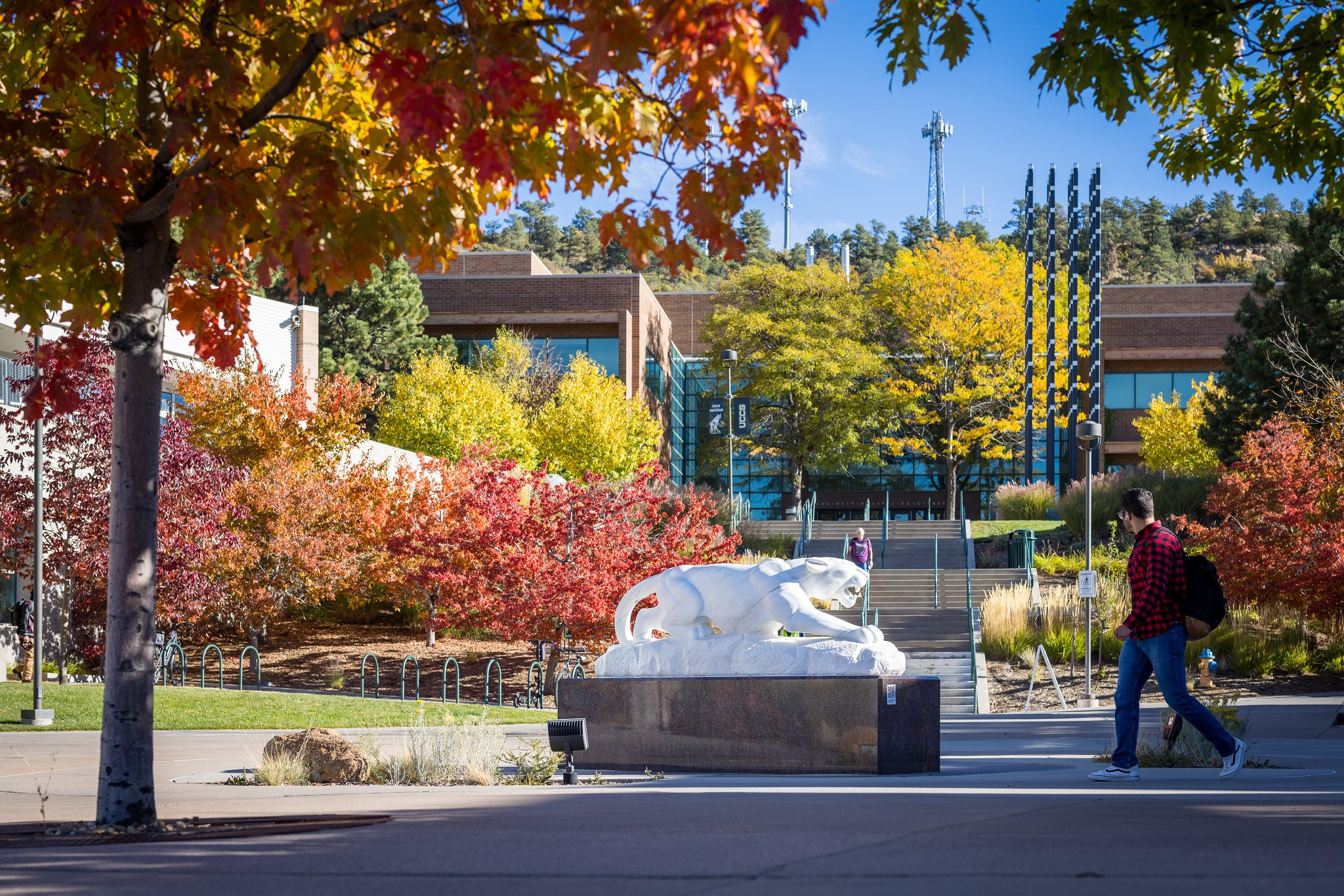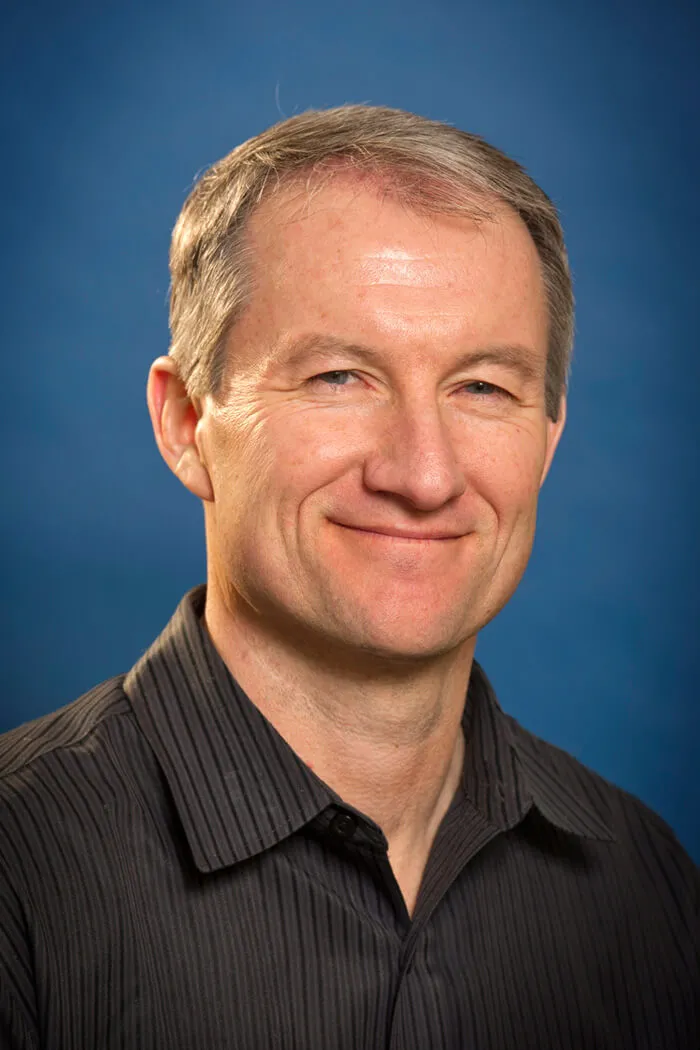

Joseph Taylor, PhD
Associate Professor, PhD Program Faculty Director Leadership, Research, and FoundationsBiographical Information
Dr. Joseph Taylor is an Associate Professor in the Department of Leadership, Research, and Foundations at the University of Colorado, Colorado Springs. Dr. Taylor's research centers on quantitative research methodology and knowledge accumulation considerations for education research. He teaches intermediate and advanced quantitative research methods in the Educational Leadership, Research, and Policy PhD Program.
Education
Ph.D. Science Education
The Pennsylvania State University – 2001
M.Ed. Mathematics Education
Ohio University - 1992
B.S. Physics Education
California University of Pennsylvania - 1991
Teaching
LEAD 8100 Advanced Quantitative Research and Statistics
LEAD 7100 Intermediate Quantitative Research and Statistics
LEAD 5220 Data-Driven Program Evaluation and Curriculum Assessment
LEAD 7000 Master's Research Laboratory in Leadership
Recent Publications
Clayton, G., & Taylor, J., (2024). Using nearest neighbor propensity score matching to estimate the effects of dual enrollment location. In Sage Research Methods Cases Part 1. SAGE Publications, Ltd., https://doi.org/10.4135/9781529683516
Whitney, P., Kluge, M., Morris, P., & Taylor, J., & Hoban, M. (2023). Determinants of perceived health in university employees. Journal of American College Health, https://doi.org/10.1080/07448481.2023.2283731
Taylor, J. A., Bowen, G. M., Kubsch, M., Summers, R., Sezen-Barrie, A., Patrick, P., Lachapelle, C., Warfa, A., & Guzey, S. S. (2023). Crossing boundaries between research and practitioner communities: The role of research use and cross-community journal authorship. Journal of Research in Science Teaching, 1–28. https://doi.org/10.1002/tea.21914
Taylor, J.A., Bybee, R.W. (2023). Commentary: Yes! Explore Before Explain. In: Jeong, S., Bryan, L.A., Tippins, D.J., Sexton, C.M. (eds) Navigating Elementary Science Teaching and Learning. Springer Texts in Education. Springer, Cham. https://static.nsta.org/pdfs/samples/PB438X2web.pdf
Westbrook, A. Adams, C. & Taylor, J.A. (2023). Digging Deeper into Student Teacher–Scientist Partnerships for Improving Students’ Achievement and Attitudes about Scientists. The American Biology Teacher, 85 (7): 379–389. doi: https://doi.org/10.1525/abt.2023.85.7.379
Taylor, J. A. and Hedges, L. V. Toward more rapid accumulation of knowledge about what works in physics education: The role of replication, reporting practices, and meta-analysis, in The International Handbook of Physics Education Research: Special Topics, edited by M. F. Taşar and P. R. L. Heron (AIP Publishing, Melville, New York, 2023), pp. 23-1–23-20.
Taylor, J., Hanuscin, D., Lee, O., Lynch, S., Stuhlsatz, M., & Talbot, R. Sources and consequences of teacher attrition in large-scale impact studies. Research in Education. https://doi.org/10.1177/00345237231155835
Polanin, J., Zhang, Q., Taylor, J., Williams, R., Joshi, M., & Burr, L. Evidence gap maps in education research. Journal of Research on Educational Effectiveness. https://doi.org/10.1080/19345747.2022.2139312
Taylor, J. A., Polanin, J. R., Kowalski, S. M., Wilson, C. D., & Stuhlsatz, M. A. (2022). Addressing test fairness in education research: A process for quantifying the alignment between outcome measures and education interventions. Social Sciences & Humanities Open, 6(1), https://doi.org/10.1016/j.ssaho.2022.100312
LaFave, A., Taylor, J.A., Barter, A., & Jacobs, A. (2022). Student engagement on the National Assessment of Educational Progress (NAEP): A systematic review and meta-analysis of extant research. Educational Assessment. https://doi.org/10.1080/10627197.2022.2043151
Taylor, J. A., Adams, C. T., Westbrook, A. L., Creasap Gee, J., Spybrook, J. K., Kowalski, S. M., ... & Bloom, M. (2021). The effect of a student–teacher–scientist partnership program on high school students' science achievement and attitudes about scientists. Journal of Research in Science Teaching. https://doi-org.libproxy.uccs.edu/10.1002/tea.21733
Taylor, J., Pigott, T., & Williams, R. (2021). Promoting knowledge accumulation about intervention effects: Exploring strategies for standardizing statistical approaches and effect size reporting. Educational Researcher. https://doi.org/10.3102/0013189X211051319
Taylor, J. A., Davis, E., & Michaelson, L. E. (2021). Considerations for evidence frameworks in education research. Review of Research in Education, 45(1), 101-128.
Eberbach, C., Hmelo‐Silver, C. E., Jordan, R., Taylor, J., & Hunter, R. (2021). Multidimensional Trajectories for understanding ecosystems. Science Education, 105, doi:10.1002/sce.21613
Taylor, J., Banilower, E., & Clayton, G. (2020). National trends in the formal content preparation of US science teachers: Implications of out-of-field teaching for student outcomes. Journal of Science Teacher Education, 31(7), 768-779.
Westine, C. D., Unlu, F., Taylor, J., Spybrook, J., Zhang, Q., & Anderson, B. (2020). Design Parameter Values for Impact Evaluations of Science and Mathematics Interventions Involving Teacher Outcomes. Journal of Research on Educational Effectiveness, 13(4).
Kowalski, S. M., Taylor, J. A., Askinas, K. M., Wang, Q., Zhang, Q., Maddix, W. P., & Tipton, E. (2020). Examining factors contributing to variation in effect size estimates of teacher outcomes from studies of science teacher professional development. Journal of Research on Educational Effectiveness, 13(3), 430-458.
Taylor, J. A., & West, B. (2019). Estimating Teacher Attrition for Impact Study Design. Educational Researcher. doi: https://doi.org/10.3102/0013189X19880550
Taylor, J. A., Stuhlsatz, A. M., & Bintz, J. (2019). The Effect of a Leadership Development Program for High School Science Reform on Student Achievement in Science: A Retrospective Quasi-Experiment. The Science Educator, 27(1), 1-17.
Taylor, J. A., Kowalski, S. M., Polanin, J. R., Askinas, K., Stuhlsatz, M. A. M., Wilson, C. D.,& Wilson, S. J. (2018). Investigating Science Education Effect Sizes: Implications for Power Analyses and Programmatic Decisions. AERA Open. https://doi.org/10.117/2332858418791991
Roth, K. J., Wilson, C. D., Taylor, J. A., Stuhlsatz, M. A. M., & Hvidsten, C. (2018). Comparing the Effects of Analysis-of-Practice and Content-Based Professional Development on Teacher and Student Outcomes in Science. American Educational Research Journal. https://doi.org/10.3102/000283121881475